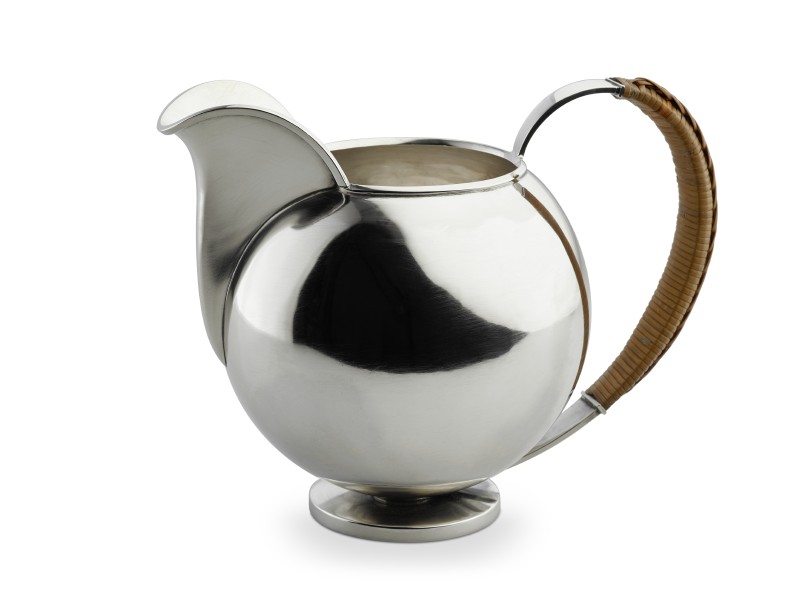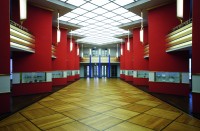Svend Weihrauchs (1899 – 1962) Kanne zeigt typische Züge des Funktionalismus. Die Gefäßform ist aus einer geometrischen Grundform, hier einer Kugel, gebildet, die Oberflächen bleiben ohne Dekoration. Dem Licht bieten sich silberne Flächen, auf denen sich Formen verstärken und akzentuieren. In Kombination mit dem Henkel aus Rattan bildet sich ein feiner Kontrast zum kühlen Silber.
Erworben aus dem Kunsthandel mit Mitteln der Slg. Giorgio Silzer und mit Unterstützung des Freundeskreises GRASSI Museum für Angewandte Kunst e. V., 2017
en

